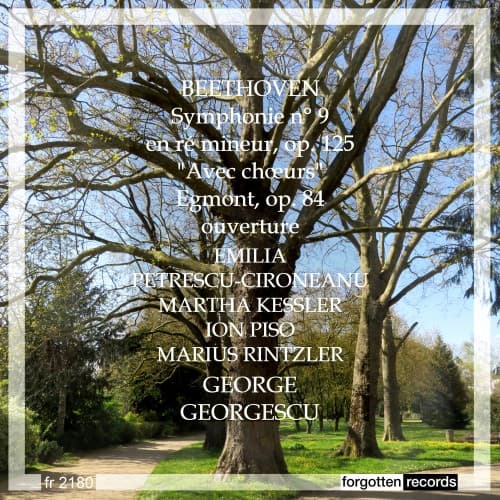The Fantasia / Fantasy as a genre in the 19th century (versus the 17th-century English fantasias, which were very different) gave the composer enormous range to use his imagination on whatever he had decided to fantasize about. In Liszt’s case, his Fantasia on Hungarian Folk Melodies from 1849–1852 takes Hungarian folk themes of contrasting character and, in a free form, makes improvisational-style permutations on the music.
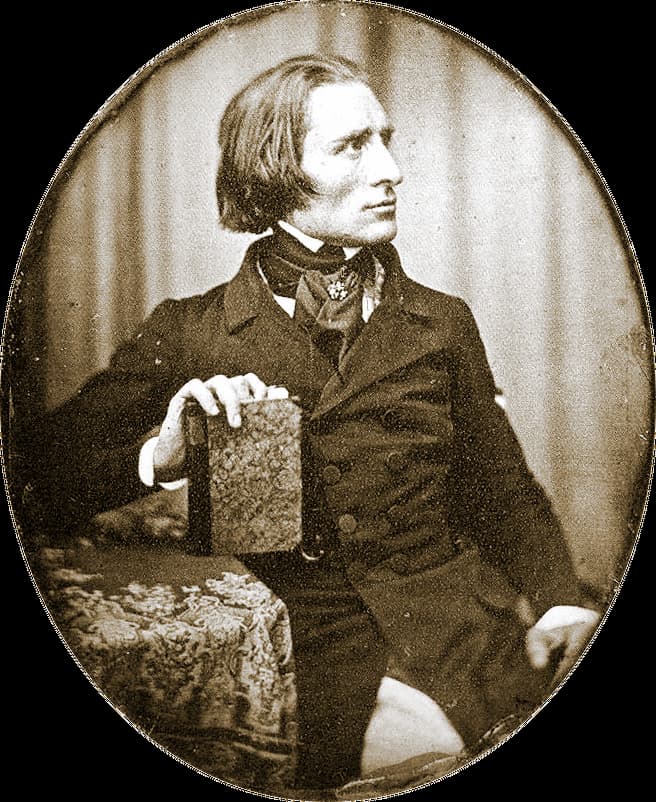
Hermann Biow: Franz Liszt, 1943
To look at where Liszt got this material, we have to look back through his own catalogue. Liszt’s Magyar Rhapsodiak/Ungarische Rhapsodien, S242/R105c, which was written for solo piano around 1846–1847, uses many of the same melodies that appear later in his Hungarian Rhapsody No. 14 in F minor, S242/R106, perhaps the most famous of his Hungarian Rhapsody cycle of 19 works, written in 1847.
Some of the melodies in the 14th Rhapsody come from Hungarian folk songs, such as ‘Magosan repül a daru’ (The Crane Flies High), which is used in the slow introduction, and the well-known ‘Koltó csárdás’ is used in the quick section, while others are of ‘uncertain origin’, and may, in fact have been written by Liszt himself.
In the case of the Fantasie über ungarische Volksmelodien (Fantasia on Hungarian Folk Melodies), S. 123. Liszt created a work for piano and orchestra that takes the earlier works for piano solo and transforms them into something greater. The piano ‘improvisations’ are set against a dancing orchestral backdrop that only serves to place them in greater contrast.
The work was dedicated to Hans von Bülow, one of his early students and eventual husband of his daughter Cosima (who later left von Bülow for Richard Wagner). The premiere was given in Pest, Hungary, on 1 June 1853, with von Bülow at the piano.
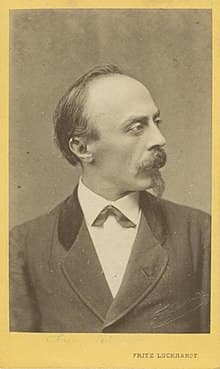
Fritz Leuchart: Hans von Bülow
Franz Liszt: Fantasia on Hungarian Folk Melodies, S. 123
This 1953 performance was recorded with Julian von Karolyi on the piano and Edmund Nick leading the Munich Philharmonic Orchestra. The orchestra was founded in 1893 and was the orchestra for three important Mahler premieres: His symphonies nos. 4 and 8, and was where the posthumous premiere of Das Lied von der Erde, conducted by Bruno Walter, was given. Wilhelm Furtwängler made his conducting debut with the orchestra in 1908. Due to the loss of players, the orchestra ceased during WWII but was restarted by the city of Munich under new leadership and its current name. The leadership by Sergiu Celibidache from 1979 to 1996 restored the orchestra’s reputation and quality. Celibidache was succeeded by some of the leading conductors of the modern age: James Levine (1999–2004), Christian Thielemann (2004–2011), Lorin Maazel (2012–2014), and Valery Gergiev (2015–2022). In 2023, Israeli conductor Lahav Shandi was announced as chief conductor starting in the 2026–27 season.
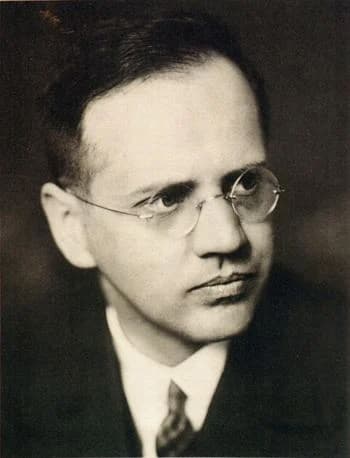
Edmund Nick
Edmund Nick (1891–1874) was a German conductor, composer, and music critic. Although his degree was in law from the University of Graz in 1918, by 1919 he was working as an accompanist in Breslau. In 1933, he moved to Berlin and in 1945 to Munich, where he was a cabaret director and then, in 1947, chief conductor of the Bavarian State Opera. He was professor (1949) at the Hochschule für Musik und Theater München and from 1952–1956, was head of the music department of West German Radio, Cologne.
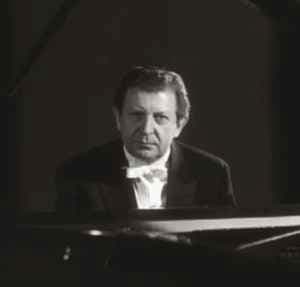
Julian von Karoly
Julian von Karolyi was a German-Hungarian pianist (1914–1993) who studied with Josef Pembaur, Jr., in Munich, Max von Pauer in Leipzig, Alfred Cortot in Paris, and Ernő Dohnányi in Budapest. He was known for his interpretations of Chopin and Liszt and made his debut recital in Berlin in 1934. He continued to perform throughout the war in Hungary, Germany, Spain, and Scandinavia. After the war, he made his base in Munich and started a series of international tours through Europe, North and South America, and Asia.

Performed by
Julian von Karolyi
Edmund Nick
Orchestre Philharmonique de Munich
Recorded in 1953
Official Website
For more of the best in classical music, sign up for our E-Newsletter

